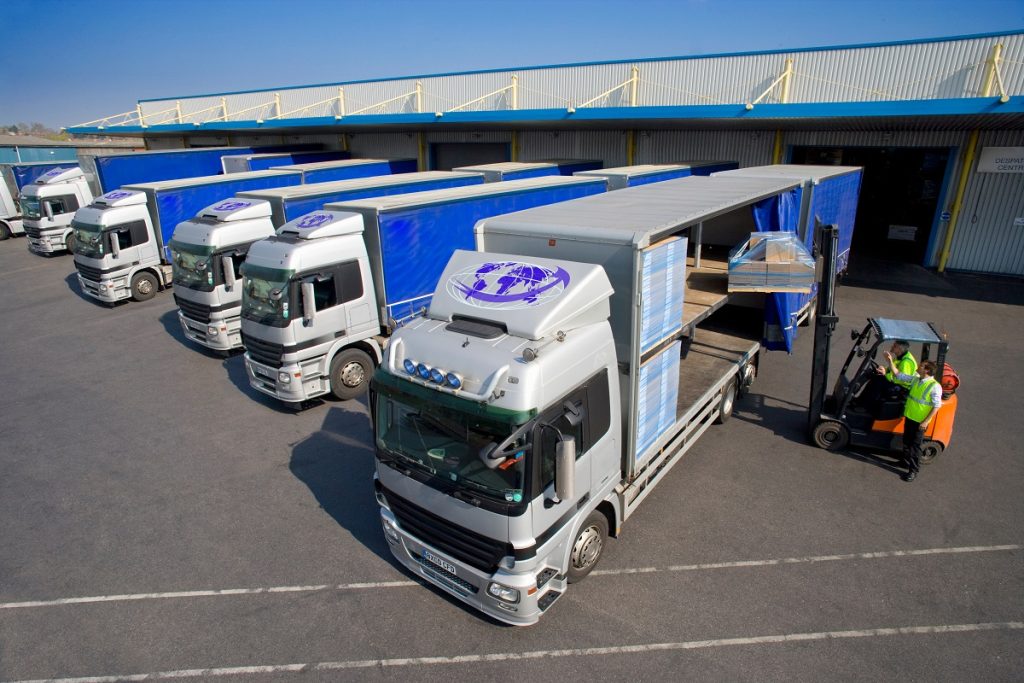Transportation plays a pivotal role in modern society, impacting every aspect of people’s lives. From personal commuting to the seamless functioning of industries, its significance cannot be overstated. In particular, the business world heavily relies on transportation and logistics services to thrive. In 2021, the transport and logistics services market surpassed a staggering $1149.92 billion, underscoring its immense importance.
Among the vital players in the transportation industry is the box truck business. Box trucks, with their enclosed cargo area, serve as versatile workhorses that facilitate the movement and delivery of goods with efficiency and security. As a key element of the logistics chain, these trucks play a crucial role in ensuring timely deliveries, reducing damage risks, and maintaining product integrity during transit. For entrepreneurs aspiring to venture into the transportation industry, starting a box truck business offers a promising opportunity to contribute to this dynamic and ever-growing sector.
- What is a Box Truck Business?
- Step-By-Step Guide To Start Box Truck Business
- Box Truck Business Insurance and Regulations
- Building a Box Truck Business Fleet
- Box Truck Business Operations and Logistics
- Marketing and Branding for Box Truck Business
- Box Truck Business Cost and Revenue Analysis
- Challenges and Solutions in Box Truck Business
- Is Box Truck Business Profitable?
- Box Truck Business Sustainability and Growth
- Future Trends in Box Truck Business
What is a Box Truck Business?
A box truck business involves operating a fleet of vehicles equipped with enclosed cargo compartments, commonly known as box trucks. The primary purpose of this business is to provide efficient and secure transportation and delivery services for various goods and cargo. Box trucks come in various types and sizes, such as straight trucks, cube vans, and delivery vans. These vehicles offer different cargo capacities and loading options, making them suitable for diverse transportation needs.
With their weather-resistant and lockable compartments, box trucks ensure the safe and protected transport of items, making them a preferred choice for businesses involved in logistics, moving, and deliveries.
Step-By-Step Guide To Start Box Truck Business

To start a box truck business and enter the world of self-functioning businesses, follow these essential steps:
- Research and Planning: Understand the market, competition, and potential clientele. Develop a detailed business plan outlining your goals, target market, and financial projections.
- Legal Requirements: Register your business and obtain necessary licenses, permits, and insurance to operate legally.
- Financing: Secure funding for purchasing or leasing your box trucks and cover initial operational expenses.
- Selecting the Right Box Truck: Choose trucks that align with your business needs, considering size, capacity, and fuel efficiency.
- Build a Reliable Team: Hire skilled drivers and staff to ensure smooth operations and excellent customer service.
- Marketing and Networking: Create a strong online presence and network with potential clients to secure contracts and partnerships.
- Operational Setup: Establish a well-organized dispatch system and optimize routes for efficient deliveries.
Box Truck Business Insurance and Regulations
Insurance coverage is crucial for a box truck business to protect against accidents, damage, and liability. Compliance with local, state, and federal regulations is vital for legal operation. Obtain comprehensive commercial auto insurance, cargo insurance, and liability coverage. Stay updated on transportation laws, permits, and safety regulations to ensure compliance and avoid penalties.
Building a Box Truck Business Fleet
Expanding a box truck business fleet requires strategic planning. Consider factors like market demand, financial stability, and operational capacity. Evaluate profitability, maintenance costs, and hiring additional drivers. Gradually scale the fleet to ensure seamless growth and meet customer needs efficiently.
Box Truck Business Operations and Logistics
To make your business productive, focus on efficient day-to-day operations and logistics. Streamline schedules, optimize routes, and implement reliable delivery tracking systems. Prioritize excellent customer service, timely communication, and well-maintained vehicles to ensure smooth operations and build a loyal clientele.
Marketing and Branding for Box Truck Business

Effective marketing and branding are vital to attract clients for a box truck business. Utilize social media for businesses to showcase services, customer testimonials, and promotions. Invest in a professional website, engage in local advertising, and collaborate with other businesses. Offer referral incentives to grow the customer base organically.
Box Truck Business Cost and Revenue Analysis
A box truck business entails startup costs like truck purchase/lease, permits, and insurance, while ongoing expenses include fuel, maintenance, and labor. Revenue comes from delivery fees, contracts, and additional services. Maximize profits by optimizing routes, minimizing overheads, and diversifying services to cater to various customer needs.
Challenges and Solutions in Box Truck Business
Box truck business owners and drivers may encounter challenges like rising fuel costs, intense competition, and tight delivery schedules. Solutions involve investing in fuel-efficient vehicles, exploring niche markets, and utilizing technology for route optimization and real-time tracking. Effective communication and adaptability can help overcome challenges and ensure business success
Is Box Truck Business Profitable?
The profitability of a box truck business largely depends on factors such as market demand, competition, and operational efficiency. With the continuous growth of e-commerce and delivery services, there is a significant demand for reliable transportation solutions.
Entrepreneurs who optimize their operations, build strong client relationships, and offer specialized services can find substantial success. Success stories of box truck business owners showcase how strategic planning, innovative approaches, and excellent customer service have led to profitable ventures in this dynamic industry. However, continuous monitoring of market trends and adaptation to changing demands is crucial for sustained profitability.
Box Truck Business Sustainability and Growth
Ensuring the long-term sustainability and growth of a box truck business requires strategic planning and adaptability. Diversify services to meet evolving market demands and cater to various industries. Embrace eco-friendly practices to attract environmentally conscious clients and reduce operating costs. Invest in technology for route optimization and real-time tracking to enhance efficiency. Foster strong customer relationships through exceptional service and feedback incorporation. Keep abreast of market trends and competition to remain competitive.
By being agile and responsive to customer preferences, a box truck business can secure a solid position in the transportation industry and continue thriving amidst market changes.
Future Trends in Box Truck Business

The future of the box truck business is marked by technological advancements and automation. Innovations like electric and autonomous box trucks are gaining traction, promising eco-friendly operations and reduced labor costs. Integration of artificial intelligence and route optimization software can streamline deliveries, minimizing fuel consumption and enhancing efficiency.
Additionally, real-time tracking systems and Internet of Things (IoT) solutions offer greater visibility and security for cargo. However, to embrace these trends successfully, businesses must invest in staff training and stay updated on regulatory changes. Embracing these emerging technologies will elevate the box truck industry, creating a more sustainable and efficient transport ecosystem.
Starting and running a successful box truck business requires careful planning, adherence to regulations, and dedication to customer service. By understanding market demand, optimizing operations, and embracing technology, aspiring entrepreneurs can thrive in the transportation industry. With confidence and determination, embarking on this venture presents an opportunity to build a self-functioning business and contribute to the dynamic world of logistics and deliveries.



